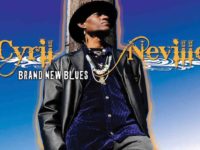
The Meters started out as the largely unknown rhythm section behind some of New Orleans’ most important R&B records, and eventually became, well … a largely unknown recording and touring act.
Just why, after listening again to 1974’s “Rejuvenation,” continues to daze and confuse.
On-the-one R&B combines with a frisky sense of adventure — the Meters, and Svengali producer Allen Toussaint, layer on fuzzy guitar, afro-shaking polyrhythms and these sizzling soul screams — to make a perfectly titled groover: “Rejuvenation,” which provided this pleasant Monday morning jolt around my house, has lost none of its memorable heart-leaping joy in the intervening 35 years.
Fans of the stripped-down soul of “Cissy Strut,” the Meters’ first and most successful tune (No. 4 R&B, No. 23 pop in 1969), will find that notion brilliantly advanced with intricately interlocking thickets of rhythm, themes that energized the feet and mind, and riffs like rising thunderclaps.
The Meters, as much as anyone this side of James Brown, provided a connective bridge (swaying, no doubt) between the processed, occasionally almost vacuum-packed vibe of Motown and the ferociously honest, free-form black music of the 1970s — which quickly developed into funk and then hip hop.
[SOMETHING ELSE! INTERVIEW: Zigaboo Modeliste talks about key moments with the Meters, hanging with the Rolling Stones, and how he taught himself to play by not playing.]
Yet, throughout, Hammond B-3 organist Art Neville, bassist George Porter Jr., guitarist Leo Nocentelli and drummer Joseph “Zigaboo” Modeliste remain so in the pocket on “Rejuvenation” that they probably emerged from the studio covered in lint. Even today, every part of this band intrigues: Neville’s percussive organ style (a bit of James Booker, a touch of Bill Doggett); the precise, biting axe work by Nocentelli (like Wes Montgomery, playing in an Uptown bar); the nimble Porter (who, no surprise, once aspired to play guitar himself) and the engrossing complexity of Modeliste — who, I swear, could out-soul most bands with one foot on tracks like “Africa.” Still, as these tracks were being laid down in the mid-1970s, the Meters remained more influential than they were commercially successful — opening for the Rolling Stones, playing a record-release party for Paul McCartney (later blessedly issued by Rhino as “Uptown Rulers!”), but struggling to get songs into the Top 40.
The Meters — the remarkable, if thankless, soul underpinnings on records in the late 1960s and early 1970s by Lee Dorsey, Betty Harris, Dr. John, Toussaint and Patti LaBelle — saw the sadly still-relevant “People Say” from this album struggle to No. 52 among R&B singles. Favorites like “Jungle Man,” embedded below in a 1974 medley with “Look-Ka Py Py,” didn’t chart at all. Even the legacy-building “Hey Pocky A-Way” (with bright blasts of brass arranged by Wardell Quezerque) only went to No. 31.
A tucked-away treasure, the Meters never found their own fame in the way of similarly brilliant backbeat providers like Booker T. and the MGs.
No matter. Let it be our secret. Our funky, funky secret.
- How Deep Cuts on ‘Music From Big Pink’ Underscore the Band’s Triumph - July 31, 2023
- How ‘Islands’ Signaled the Sad End of the Band’s Five-Man Edition - March 15, 2022
- The Band’s ‘Christmas Must Be Tonight’ Remains an Unjustly Overlooked Holiday Classic - December 25, 2016



